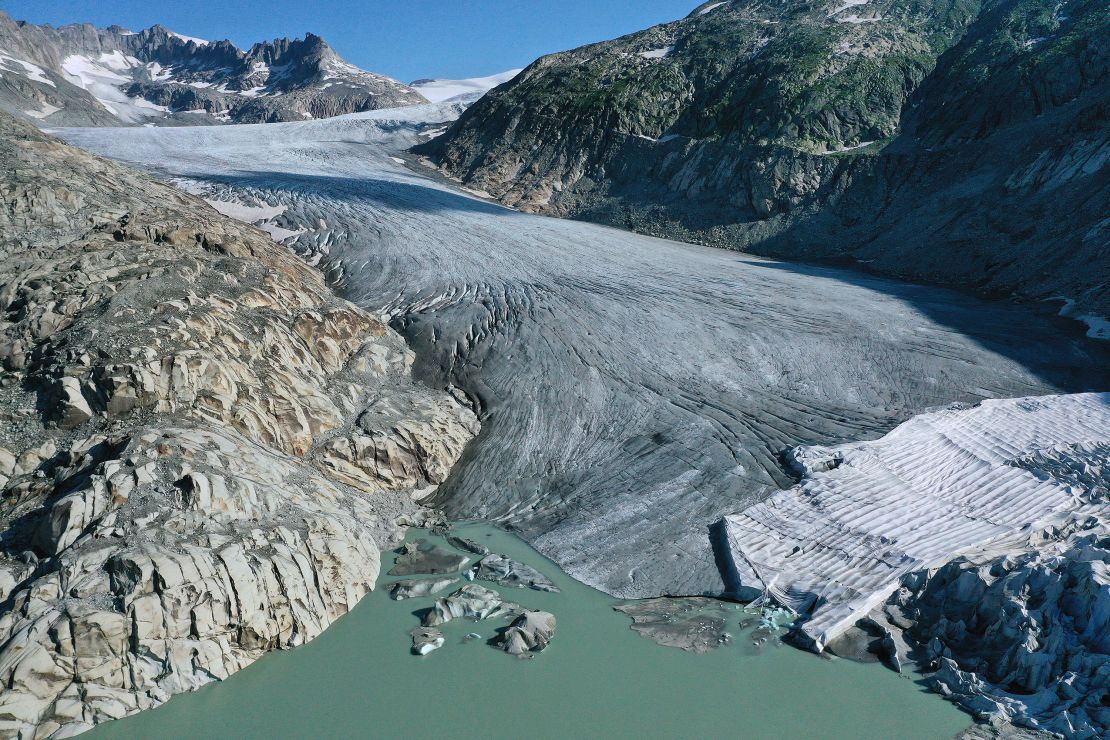Glaciers in Switzerland have shrunk 10% in the past five years, a rate that has never been seen before in over a century of observations, according to new research published Tuesday.
The summer 2019 heatwave saw glacier melt rates break records, leading to huge losses in ice volume, reports the Cryospheric Commission (CC) of the Swiss Academy of Sciences.
Glaciers around the world are melting due to climate change, and this latest research shows the extent of the problem in Switzerland.

Scientists from the CC took measurements from 20 glaciers in the nation and found that about 2% of Switzerland’s total glacier volume was lost in the past year, according to a statement from the organization..
Initial signs for 2019 had been encouraging after glacier snow cover was measured at 20-40% higher than normal in April and May, according to the statement, following a very cold January with lots of precipitation.
However the third-hottest summer since records began meant melting accelerated dramatically.
Melting was particularly severe in eastern Switzerland and the northern side of the Alps, according to the research, while the southern Gotthard region lost less glacier volume.
More than 500 Swiss glaciers have been lost since 1900, and 2019 saw the Pizol glacier removed from the country’s glacier monitoring network.
Situated in the Glarus Alps, eastern Switzerland, the glacier stands at an altitude of about 2,700 meters. It has lost 80-90% of its volume since 2006 and will be the first to be taken off the network after being monitored since 1893, according to researchers from ETH Zurich university.
Most glaciers in Central Europe, Western Canada and the United States will vanish in the second half of this century if current rates of ice loss continue, according to a report released in April.
Glaciers have lost over 9,000 billion tons of ice between 1961 and 2016, according to a research letter published in the journal Nature. This amounts to a block of ice the size of Germany and almost 100 feet thick, or the size of the United States and 4 feet thick, said lead author Michael Zemp.
